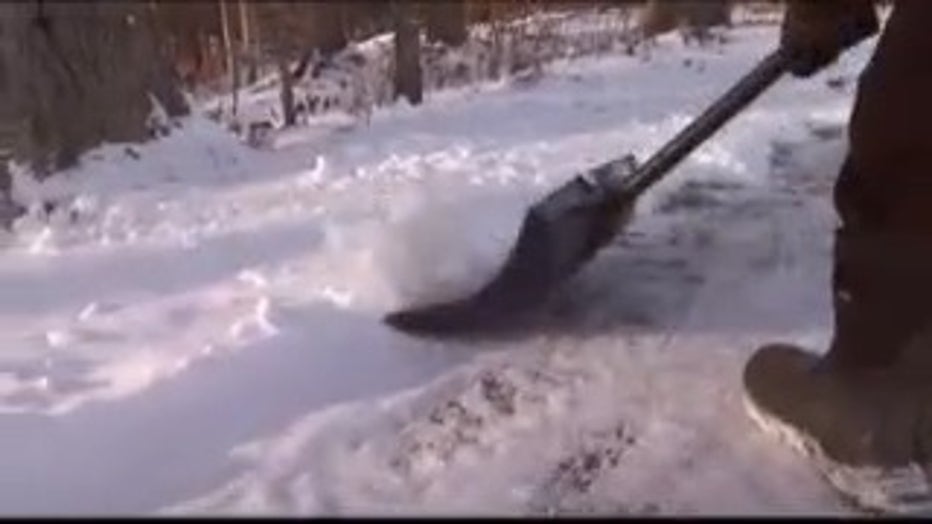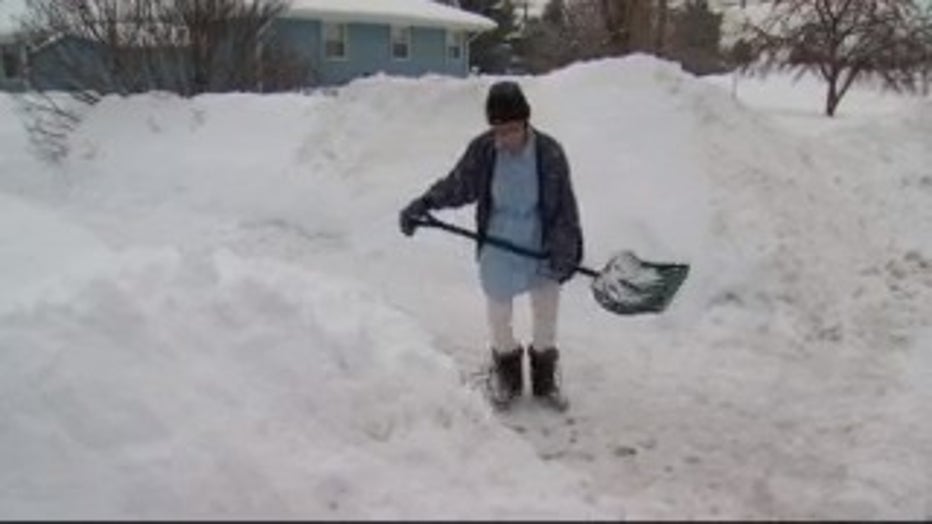Shoveling snow is more dangerous if you've had COVID-19, says doctor
FOX 2 - The health problems associated with shoveling are real, even when it's not during a global pandemic with an illness that affects your respiratory system. People who have had COVID-19 need to be even more careful while clearing the snow.
Doctor talks about the danger of shoveling snow if you’ve had Covid
People who have the virus, even if they didn't know they had it, are at high risk for heart issues when over-exerting themselves. Dr. Trivax says while some experience chest pain and fatigue, often, symptoms are much more subtle.
Health experts have always warned that shoveling heavy snow can put a lot of strain on your back and your heart. In the past, they've urged people at risk for heart disease or heart problems to take it easy by clearing it with a snowblower or paying someone else to do it.
But now there's a new group of people who should be careful: people who have recovered from COVID-19.
Dr. Justin Trivax is an interventional cardiologist at Beaumont Health and says shoveling in below-freezing weather is a workout for most. But it's more dangerous for people who have had COVID-19.
"It’s essentially the ultimate stress test," said Dr. Trivax. "When the heart, in some people, is affected by COVID, a variety of different things can happen. It just doesn’t play by the rules - so to speak."
Dr. Trivax says while the hospitals aren’t getting as many COVID patients, they’re starting to see more people known as long haulers: they've been experiencing symptoms months after being diagnosed.
"A lot of prolonged cardiovascular symptoms: fatigue, shortness of breath, exercise intolerance, just not getting back to where they need to be," Dr. Trivax said.

People who have the virus, even if they didn't know they had it, are at high risk for heart issues when over-exerting themselves. Dr. Trivax says while some experience chest pain and fatigue, often, symptoms are much more subtle.
"The virus actually infiltrates into the muscle and can cause inflammation and we call that myocarditis - inflammation of the heart muscle."
Dr. Trivax said to think about it like this: if you shovel your driveway for 20 minutes and each shovel-full weighs 15 pounds. If you do that 10 times a minute that's thousands of pounds in a short amount of time.
"All that person needs is a little bit of physical activity to set it off and that can result in really adverse issues like heart failure, rhythm disturbances, and sudden cardiac arrest," said Dr. Trivax.
For those who’ve had the virus, even if they were asymptomatic, Dr. Trivax recommends they visit their doctor when possible to get a stress test done. Above all else, listen to your body.

"Usually when someone thinks there’s something going on with their body that’s just not right, they’re usually right," he said.

